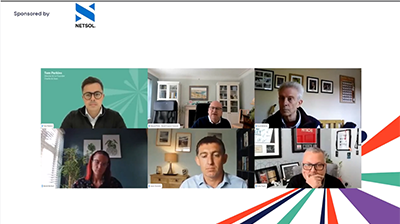
As the UK auto industry seeks to stimulate demand as lockdown eases, all eyes are on how China is reacting.
With passenger vehicle sales dropping by as much as 81.7% in February at the height of the pandemic, China has suffered under the weight of its attempts to contain the virus. Recovering slightly the month after, a total of 1.43 million vehicles were sold in March, down 43.3% from the same month the year before.
According to the China Association of Automobile Manufacturers, passenger vehicle sales fell 27.4% from a year earlier to 6.1 million in the first five months of 2020. By the time that May came around and auto sales began tentatively recovering - rising 14.5% - much of the damage had already been done.
China’s government began reopening factories and stores in March, although rising job losses and fears of a second wave of infections have resulted in a reluctant approach to large purchases from consumers.
Taking into account this significant drop in auto sales, China is expected to announce further policies to boost car sales and stimulate demand.
The finance ministry has already released a plan to extend subsidies for new energy vehicles until 2022, with the vehicles remaining exempt from purchase taxes for another two years as well. Many cities throughout the country are also relaxing their license plate quotas, with Shanghai offering 40,000 more and Hangzhou offering a further 20,000.
Methods of stimulating demand
In terms how auto dealers may go about stimulating demand here in the UK, Peter Cottle (pictured), head of automotive sector at Growcap, said: “My view is that dealers should not heavily discount used car stock, as they need to see a good profit margin on each car, as used cars along with servicing is their key profit centre. Also, good clean car stock is in short supply at the moment so replacing cars will not be easy. Therefore, one idea would be providing an attractive low rate finance offer (even as low as 0%) to grow demand. These short sharp campaigns always seem successful, but the cost of subsidising the rate naturally needs to be taken into account.
“Moving away from finance the attraction of a home delivery service to a used car buyer will have gained popularity. Many customers will remain fearful of Covid-19 for a long time so giving them the confidence of a safe process either at home or in the showroom will be key and promoting this on websites etc.
“The US have offered finance deals and terms of up to six years to offer lower repayments to stimulate demand. Typically, in the UK the desire for a lower repayment has been achieved by personal contract purchase (PCP) over a 42-48-month agreement. Most finance companies are reticent about offering hire purchase over a period of more than 60 months, which is understandable. Total cost of finance (TCF) also comes into play here to ensure a customer is not locked into a finance agreement way beyond their normal change cycle.”
Cash for clunkers
Here in the UK, there has been much talk about how organisations and the government could stimulate demand in the auto finance market, particularly through the use of scrappage schemes.
Hailed as a potential saviour of new car registrations, scrappage schemes have been used traditionally in the past in times of recession when the auto industry needs stimulating. The most recent use was in 2009 at the height of the great recession. The UK government commenced a scheme in April 2009 to contribute £1,000 to anyone seeking to replace their old car with a new one, and manufacturers also had to contribute £1,000 to a reduction off the cost price.
The old vehicle had to be owned for over 12 months and had to be older than 10 years.
While it is generally hoped this could stimulate demand in the marketplace, there is an element of risk depending on how long the government takes to apply the scheme. For example, many customers could be holding off on vehicle purchases with the view to maximise the benefits of future incentives, harming demand at an early, yet crucial, stage of economic recovery.
Perhaps hinting at the efficacy of such schemes, the Americans gave them the nickname, “Cash for Clunkers” due to how they panned out in 2009. It seemed that the majority of people who used the scheme were the owners of ancient foreign models, and replaced them with new foreign models manufactured abroad, and so it was thought that the scheme did not do much for the UK auto manufacturing industry.
Cottle continued: “The scrappage scheme back in 2009 was only for new cars and in order to qualify, you were scrapping a much older car which I always thought would restrict the take up - purely on the customers’ ability to afford to buy or finance a new car. There is also no doubt that the scrappage scheme of 2009 brought forward some purchases so it was not really incremental but helped dealers at the right time. We may see a VAT free, or reduced, based offer again on certain models.
“I feel that scrappage schemes attract the type of customer who "likes a deal", also cash customers appear to like the scheme. Whilst most customers who drive an older car do so due to financial restraints there are customers who do so despite the ability to buy new. This category is often not "car people" and unexcited about having the latest model on their drive. But seeing a financially attractive cost of change can motivate them as could being environmentally friendly.”
Recently, the BVRLA and FLA have stepped up calls to government to develop a car scrappage scheme that tackles air quality and drives electric vehicle uptake. Although rumours have emerged that the Treasury were considering a scheme, this could now be abandoned.
This is primarily due to concerns that a scrappage scheme would aid foreign manufacturers more than those in the UK, as we saw during the 2009 financial crisis. During this period, the incentive boosted demand for small city cars benefiting Hyundai and Kia instead of manufacturers in the UK such as Nissan, JLR and Honda.
Peter Cottle is set to engage in a panel discussion to hammer out topics crucial to the industry at this time of great uncertainty, including sector demand, the effect of government regulation and the appetite of funders.
The IAFN Online conference entitled ‘COVID-19 Legacy – Auto and equipment finance and the liquidity squeeze’ will take place at 1:00pm Thursday 18 June. Click on the banner to book your free place.







